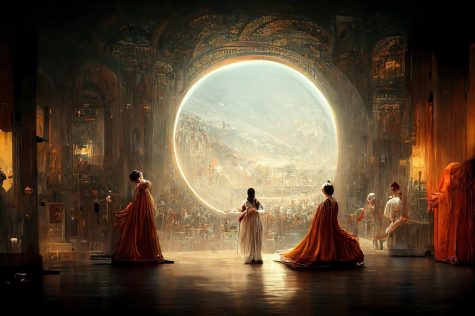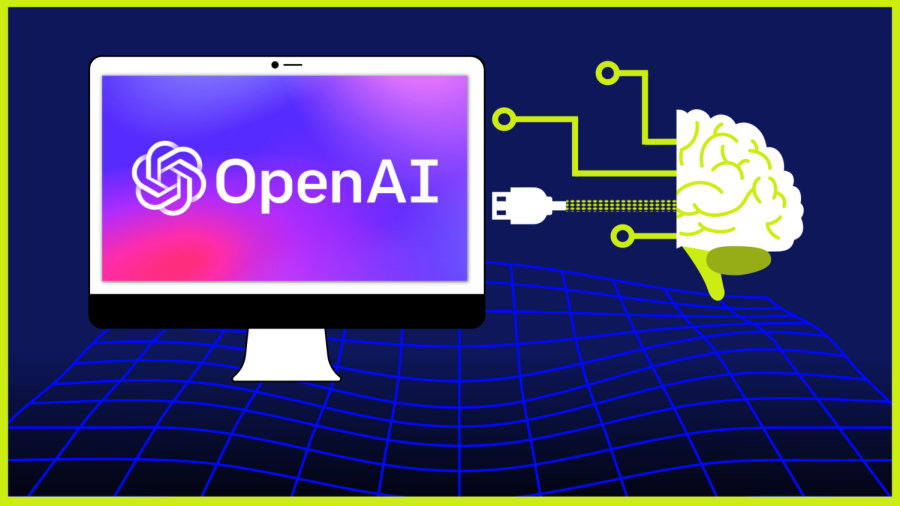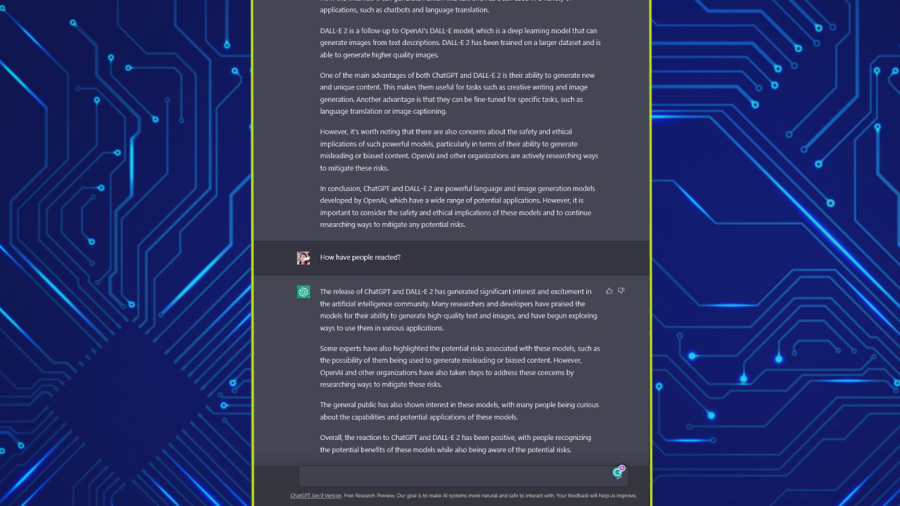Advanced AI for 2023
January 20, 2023
Over the past few years, Artificial Intelligence (AI) has become mainstream. Towards the end of 2022, the AI world made a significant breakthrough when OpenAI released its beta AI chatbot, ChatGPT, to the public. Demand Sage states that ChatGPT reached over one million users within the first week of its debut.
The chatbot’s ability to generate great detail and coherent responses is impressive. You can ask many questions, from making crochet patterns to relationship advice, all the way to debugging code. Not only that, but you can also have it regenerate its response or ask follow-up questions to get a more specific answer.
What makes OpenAI’s creation so impactful is that they’re entirely free and accessible to the public. As a result, ChatGPT could be one of the greatest assets in our everyday lives, and might even replace others. For example, students who once used the popular Grammarly AI system to improve their essays can now have their essays both written and edited by ChatGPT. Applying it to business data, customer service, research, advertising, and creative writing are only a few possibilities.
OpenAI has already expanded the AI world greatly with ChatGPT, but that’s not their only monumental contribution. DALL-E 2 is an AI art generator that can produce high-resolution images from a user’s text input. AI art has become popular within social media recently, where influencers are using various AI art generators or AI TikTok filters to create portraits of themselves.
However, many real artists look down upon the complex generated artworks. AI and technology have always been seen as a threat for workers of any field, but for artists especially, that fear only grew when an AI-generated art piece won a prize at Colorado’s State Fair art competition in the digital category. This sparked a furious backlash on social media, the common argument being that generating art does not represent true traditional artistry.

Our expansion on AI is revolutionary, but it definitely raises many ethical questions. It would be nearly impossible to ban its use entirely, so how do we find a balance between utilizing and relying on AI? As this valuable technology integrates into our society, it’s important to find a way to take advantage of its great potential while still being aware of the negative possibilities.




